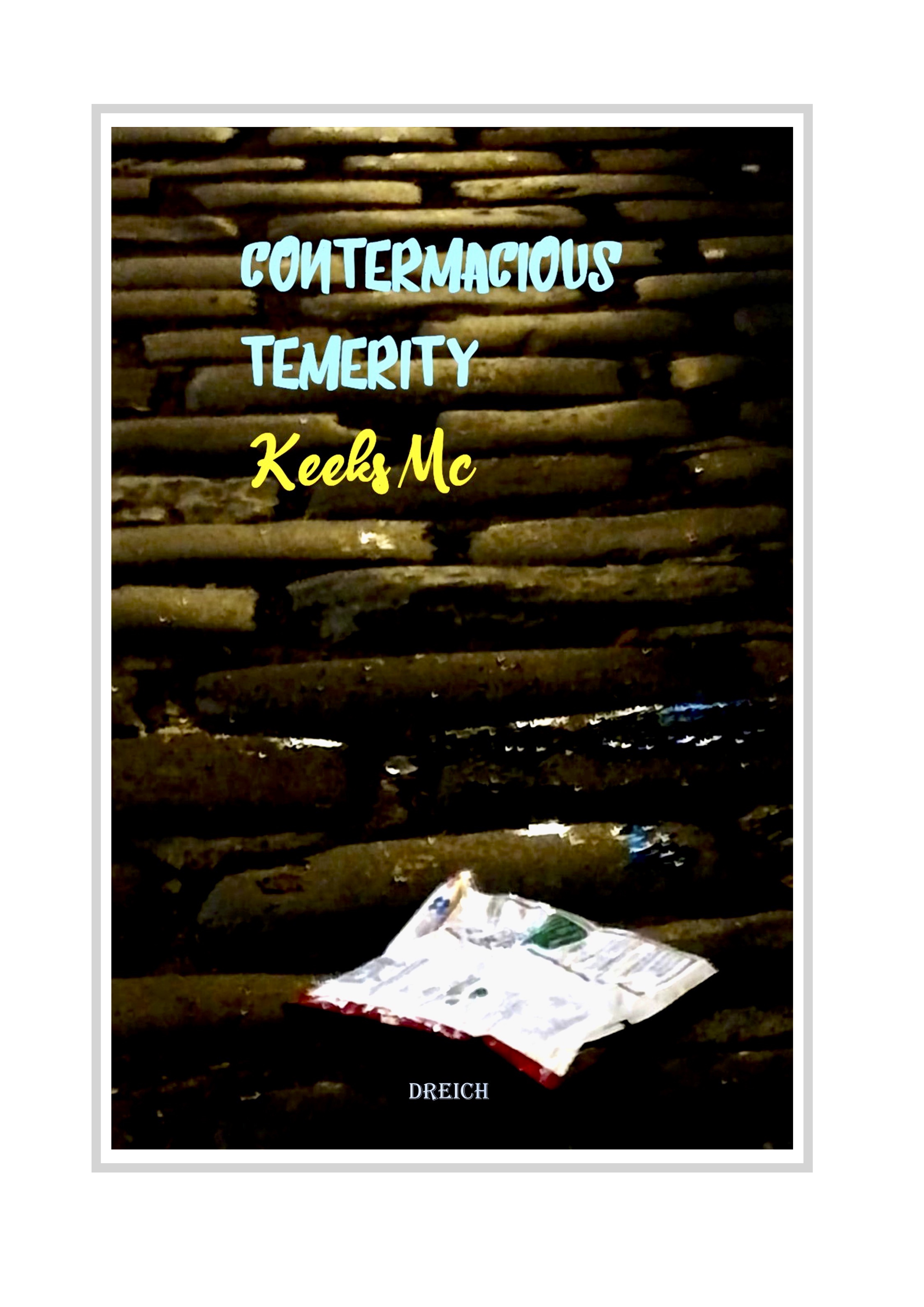BRUNO DIAZ was born in Zurich and brought up in the north of England. He studied English at King’s College London and Creative Writing at Bath Spa University. He writes poetry and prose, and blogs about travel, culture and cocktails: https://medium.com/@brunodiazwriter.
In a Room with History
“As for us, we were never concerned with the Kantian-priestly and vegetarian-Quaker prattle about the sacredness of human life.” Leon Trotsky
Is it OK
that on the way
to Avenida de Churubusco
I stopped at a Starbucks
for coffee and cake
and an agribusiness bushel of all butter croissant?
Then again, I think Leon
would have forgiven me
for frequenting a chain,
a shackle,
with such an aggressive
policy of expansion.
One where the workers
definitely do not
own the means of production.
After all, in the museum reception
he hangs,
in overwhelming proportions,
wearing a jacket
cut with surprisingly fashionable
Harrington ease.
Unzipped to the chest,
revealing a collar large and scalene,
rather modishly buttoned right up to the top.
To make me feel better
through wire specs he stares
over my shoulder
towards the dining room’s family –
four plain wooden chairs,
whose smoothly turned spars
were sanded and slotted,
carefully stained
a tasteful, understated yellow,
by comrades presumably
not in receipt of a minimum wage,
nor covered by socialised healthcare insurance.
Off the kitchen is the study:
a paper coffin lined with Gide,
Kafka, London.
An envelope lidded in encyclopaedias,
walled with dust jackets,
day-bedded, so Leon could rest
worn out after mornings hard at it
on letterless typewriter keys,
accompanied by the radio, his Edison wax cylinder recording machine –
factory-made mod cons thought essential
to bring down the bosses, the soft bourgeoisie,
and write the love letters he slipped into books for Frida Kahlo.
The ground is all faded red leather floorboards.
Like the scuffed-up toes
on a pair of worn-in ox-blood brogues.
Or a washed-out banner,
its hammer and sickle lost in the corner
under a desk or a chair.
The colour scheme must have made the maid’s
job that much easier –
yes, the Trotskys had servants –
when she got down on her knees and hands
to scrub, to erase, to clean
Mercarder’s ice-pick statement,
Stalin’s refusal to blink.
Stains that echo Hawking, Vaneigem, Enlai:
‘The impact of the French Revolution? It is too soon to say.’
Let Us
Let us take a wing from the hummingbird’s brief.
Let us dance and dally and balance on the breeze.
These exact pockets of muscle. This carefully-honed sheen.
Imbibing fructose through a precision-tooled beak.
Let us not bow ourselves to some web of desks
to paste away the day in a rattle of pixels,
fumbling with qwerty, alt-tabbing frantic between
the flat screen spoons that now measure out our lives,
the coffee breaks taken, the bio-rhythms timed
by a matrix vined with trolls, erratic clicks and likes,
a bugled loop of ego – our unbetter sides.
For the story told in our eyes and bones
is of bodies, yes, who can squat and hunch and watch and fold
when there is quarry to hunt or meaning to divine.
But would rather prowl and jump and brake and jive,
dancing merry, honeybee-like, through a ripened life of hugs,
handshakes, pinch and punch. Baroque days fecund
with brassy, bassy, lo-fi loves.
So let’s not suffocate like mammoths beneath credit card slips –
congealed in a crystal grotto of gamed algorithms.
A furred up coat of frozen nerves. Commoditised tusks.
Our poker faces staring out at the cold plastic tundra.
Instead, let us drift away to distant zones
between hedgerows where
heaven’s bread ripples in perfect lopsided waves.
Surrounded by such gold, and out of range –
where pins drop among ears that bend and break
under the nibbling weight of field mice –
let’s stop and chat and listen and pause
in search of true, consistent voice,
that we might learn to really talk
with others and ourselves.
And remind us to nod and know and laze
in awe, at the butterflies and dragons, clearwings, wasps
who put in their shift: the pregnant craft of actual work –
the subtle shuffling of colour and real pollen.
A Line in the Sand
The plane banks hard right,
revealing lines
on layered rock –
concrete poems etched in lime and clay
carved across hills long dead.
A journal of blisters, italicised and fixed
at the
bottom of an ancient iron sea.
Dry ferrous bones.
Red and caustic.
—
We spiral, plummet.
G-force pummels.
The Cessna, a snappy insect,
a wing-ed pup,
animates the sky
above
skinny spiders and sightless monkeys.
Hummingbirds;
hypodermic condors.
Landing strips.
Aliens.
—
No one knows anything.
What they are,
or why we’re here.
Least of all the guides
who punctuate the air
with the pop and static
of a well-worn script.
—
From an altitude of two
thousand years,
eternity flashes
between my knees.
The abyss.
I clutch at my sick-bag as we come into land.
If you wish to read the poems in page view, the following link will take you to a PDF – Bruno Diaz Poems
All works published by the Glasgow Review of Books are licensed under a Creative Commons Attribution-NonCommerical-NoDerivs 3.0 Unported License and the journal reserves the right to be named as place of first publication in any citation. Copyright remains with the poet. http://www.glasgowreviewofbooks.com




Leave a Reply